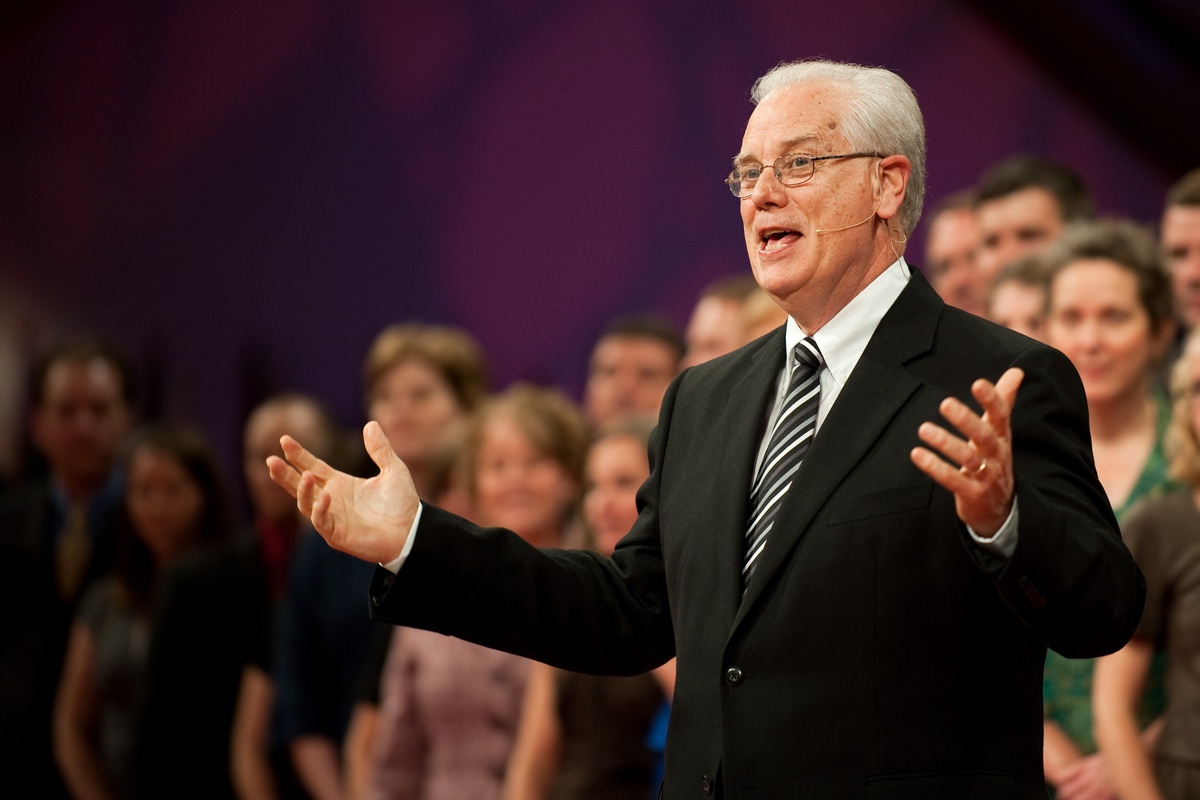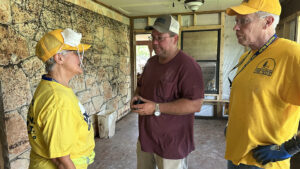
RICHMOND, Va. (BP)–A few packed boxes line the back wall of Jerry Rankin’s office at the International Mission Board (IMB) in preparation for his retirement as president on Aug. 1.
After 17 years as IMB president — and 23 more on the mission field — Rankin and the 164-year-old organization are not strangers to transition and change.
It was a different time in 1993 when Rankin became the IMB’s 10th elected president. The Internet was just getting started, terrorism was still seen as something that happened overseas, a gallon of gas in the United States averaged $1.16 and Twitter and Facebook didn’t exist.
In the mid to late ’90s, Rankin and the organization grappled with new ways to get the Gospel into tougher, more restricted places. Though the fall of the Berlin Wall and the collapse of the Soviet Union had opened mission opportunities years before, more and more countries were beginning to deny missionaries access.
“Keith Parks [Rankin’s predecessor] had initiated some very creative approaches … to send missionary personnel into restricted countries and people groups, and initiate nonresidential missionary strategies where people could not actually live among the people they were targeting,” Rankin says.
“But that had not really gained the traction to have a significant impact on our global strategy … and literally one-third of the world did not have access to the Gospel. We were still in a paradigm of basically sending missionaries where missionaries were welcome and could serve.”
Out of this challenge emerged New Directions, a strategy that focused less on individual countries and more on getting the Gospel to all peoples around the globe.
“It was a monumental shift,” says David Garrison, who has served with the mission board for 27 years and is global strategist for evangelical advance.
“Before this, every country had its own mission … but all those missions, one by one, dissolved into people group teams,” Garrison adds. “For the first time, the IMB engaged the entire world for the sake of the Great Commission, rather than just where we had personnel serving.”
In 1993, when Rankin began his tenure as president, the organization saw nearly 4,000 missionaries and their Baptist partners help start more than 2,000 churches in 142 countries. In 2008, more than 5,500 IMB missionaries helped plant nearly 27,000 churches and engage 101 new people groups for a total of 1,190 engaged people groups.
With that progress, Rankin and the IMB also have seen their share of challenges and heartache.
In the wake of 9/l1, the IMB lost eight missionaries to both random and targeted Muslim extremist attacks. Bill Koehn, Kathy Gariety and Martha Myers were killed Dec. 30, 2002, by a gunman at Jibla Baptist Hospital in Yemen. Bill Hyde died when a terrorist’s bomb exploded in a Philippine airport March 4, 2003. David McDonnall, Larry and Jean Elliott and Karen Watson lost their lives March 15, 2004, when insurgents attacked their vehicle in the Middle East.
“It brought into focus the reality of the kind of world we live in today,” Rankin says.
The tragic events led the IMB to initiate more extensive preparation for missionaries headed to dangerous places.
“Interestingly, it didn’t deter the interest in missionary service,” he says. “With each incident we had a prolific spike of applications of people willing to give of their lives, which I think was an amazing factor.”
With more than 5,000 missionaries and all its resources, the IMB will never have enough missionaries to reach the whole world, Rankin says.
But if the denomination could mobilize and challenge 16 million Southern Baptists to be strategically involved overseas, the resources and the potential are there to fulfill the Great Commission, he contends.
In the past decade, the IMB has focused more attention on forming stronger relationships with churches — and personalizing missions for them.
“[The IMB] has set the tone for getting churches more involved in missions,” says J.D. Greear, pastor of The Summit Church in Durham, N.C.
“They are always pushing the envelope, always striving after the nations,” he adds. “I think what a lot of churches are looking for is not for the IMB to do missions for them, but they want to do missions through them.”
In the past eight years, The Summit Church has started multiple partnerships with the IMB in difficult places and has more than 50 of its members serving overseas with the organization.
Rankin has often said he hopes his presidency will not be judged for the accomplishments of the organization under his leadership but for how the organization is poised for the future.
In the past two years, the IMB entered another major reorganization designed to help streamline administrative work, create more cost-effective and focused approaches to fulfilling the Great Commission and reach people groups that have little to no access to the Gospel.
“I believe God has blessed Southern Baptists,” Rankin says. “We stand on the verge of unprecedented opportunities to complete the task of engaging every nation, people and language with the Gospel.”
–30–
Alan James is a writer for the International Mission Board.
















